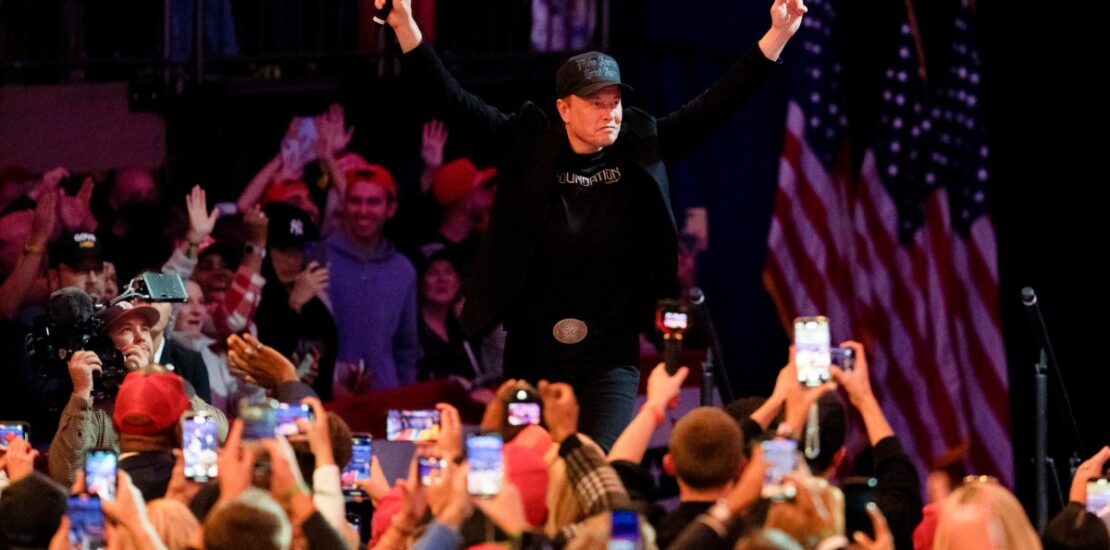What Trump’s win might mean for Elon Musk
- November 6, 2024
- Posted by: chuckb
- Category: TC Artificial Intelligence

Elon Musk, the billionaire CEO known for leading Tesla, SpaceX, Neuralink, and xAI, recently pivoted his political stance to support President-elect Donald Trump in the wake of the election. This marked a significant turn from his previous criticisms of Trump during his first term—especially following Trump’s withdrawal from the Paris climate accords, which prompted Musk to resign from his advisory roles during that time.
Despite Trump’s historically anti-electric vehicle (EV) stance and skepticism towards climate change, Musk’s newfound support is reflected in his considerable financial contributions, donating over $100 million to a pro-Trump super PAC. The billionaire is now seen as one of Trump’s most influential advisers, especially after Trump publicly acknowledged Musk during his victory speech, calling him a “super genius” and saying, “A star is born, Elon.” In September, Trump even promised Musk a position leading a new Department of Government Efficiency, humorously abbreviated by Musk as DOGE, referencing a meme cryptocurrency he has previously promoted.
This role could potentially allow Musk to initiate sweeping reforms aimed at cutting government spending, as he advocates for a reduction in what he perceives as the overwhelming size and inefficiency of the federal bureaucracy. His approach appears to leverage the techniques that have brought success to Tesla, emphasizing innovation through simplification, such as questioning every requirement and eliminating redundant processes.
In commentary shared while traveling post-election, Musk articulated plans for modernization within government agencies, suggesting a humane transition for government employees to the private sector, paid job searches for displaced workers, and the implementation of term limits. He expressed a desire for necessary regulations without excessive bureaucracy, akin to maintaining a balance between referees and players in a sports game.
The implications of Trump’s win for Musk’s business ventures are significant. For Tesla, where Musk has long navigated government support, the anticipated rollbacks of Biden-era EV policies could create a more favorable business environment. If Trump indeed eliminates EV subsidies, Tesla could maintain its competitive edge, as it is well-established compared to emerging rivals. Analysts have reported a positive market reaction, with Tesla’s stock seeing notable gains since Trump’s victory.
SpaceX appears to be poised for advancements during the Trump administration, with Trump previously supporting the organization’s missions to Mars. Under Trump’s first term, notable strides were made in American space policy, including the inception of the U.S. Space Force. Trump reaffirmed his commitment to space exploration during campaign appearances, hinting at accelerated timelines for lunar and Martian missions that could align with SpaceX’s launch schedules. Regulatory reform within the Federal Aviation Administration is also anticipated, as Musk has criticized the agency’s perceived delays hampering commercial innovation.
However, the outlook for Musk’s social media company, X, and his AI initiative, xAI, is less certain. X has seen a significant decrease in advertising following Musk’s takeover, with major brands pulling out due to concerns over content impacting their image. Despite this, Musk is hopeful that Trump’s electoral success could restore advertisers’ confidence, leading to a reinstatement of financial support for the platform.
Throughout his entrepreneurial endeavors, Musk has frequently clashed with federal regulatory bodies, including the Federal Trade Commission and the Securities and Exchange Commission, maintaining a combative stance towards oversight that he views as burdensome. Following Trump’s victory, Musks’ xAI initiative might benefit from a regulatory landscape that prioritizes minimal interference, allowing for a more rapid development in artificial intelligence.
Economic implications could arise from Trump’s trade policies, particularly with suggested tariffs that may affect the broader AI and tech sectors. Ultimately, Musk’s journey through political alliances and business strategies exhibits a complex interplay between political power, corporate influence, and regulatory dynamics in shaping future landscapes for innovation and industry in America.
